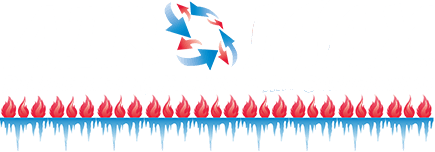As homeowners search for energy-efficient and cost-effective ways to heat and cool their homes, heat pumps have become an increasingly popular option. These systems work by transferring heat between the indoor and outdoor environment, providing both heating and cooling functions in one unit.
But is a heat pump the right choice for your home? In this article, we'll explore the factors to consider when deciding if a heat pump is the best fit for your heating and cooling needs.
1. Climate and Geographic Location
Heat pumps are most effective in moderate climates, where the temperature rarely drops below freezing. This is because heat pumps become less efficient as the outdoor temperature decreases.
In colder climates, a supplemental heating system may be necessary to maintain comfortable indoor temperatures. According to the U.S. Department of Energy, heat pumps can still be a good option in colder regions, but it's important to choose a system designed for low-temperature operation.
2. Energy Efficiency and Cost Savings
One of the main advantages of heat pumps is their energy efficiency. The American Society of Heating, Refrigerating, and Air-Conditioning Engineers (ASHRAE) states that heat pumps can provide up to three times more heat energy than the electricity they consume.
This efficiency can result in significant cost savings on your utility bills, especially if you're replacing an older, less efficient heating and cooling system. When comparing heat pumps, look for the Seasonal Energy Efficiency Ratio (SEER) and Heating Seasonal Performance Factor (HSPF) ratings.
The higher the ratings, the more efficient the heat pump. The ENERGY STAR program recommends a minimum SEER rating of 15 and a minimum HSPF rating of 8.5 for optimal efficiency.
3. Installation and Maintenance
Heat pumps can be more expensive to install than traditional heating and cooling systems, but the long-term energy savings can offset the initial costs. It's essential to work with a qualified HVAC professional, like the experts at Air Max Heating, Air Conditioning, and Refrigeration, to ensure proper installation and maximize the efficiency of your heat pump system.
Regular maintenance is also crucial to keep your heat pump running efficiently. This includes cleaning or replacing filters, inspecting and cleaning coils, and checking the refrigerant levels. Scheduling routine maintenance with a trusted HVAC professional can help extend the life of your heat pump and maintain optimal performance.
4. Types of Heat Pumps
There are several types of heat pumps available, including air-source, ground-source (geothermal), and water-source.
Each type has its advantages and disadvantages, and the best option for your home will depend on factors such as:
- Climate
- Available space
- And installation costs
Consulting with a knowledgeable HVAC professional can help you determine the most suitable heat pump type for your specific needs.
5. Potential Incentives and Rebates
Many utility companies, local governments, and federal programs offer incentives and rebates for installing energy-efficient heat pump systems. These incentives can help offset the initial installation costs and make the investment in a heat pump more affordable.
Be sure to research available incentives in your area and consult with your HVAC professional to ensure you're taking advantage of any potential savings.
Call Air Max Heating, Air Conditioning and Refrigeration Today
Heat pumps can be an energy-efficient and cost-effective solution for heating and cooling your home. By considering factors such as climate, energy efficiency, installation and maintenance costs, and available incentives, you can make an informed decision about whether a heat pump is right for your home. If you're ready to explore your heat pump options, the team at Air Max Heating, Air Conditioning, and Refrigeration is here to help.
Contact us today to schedule a consultation and learn more about the benefits of heat pumps!
